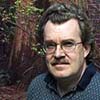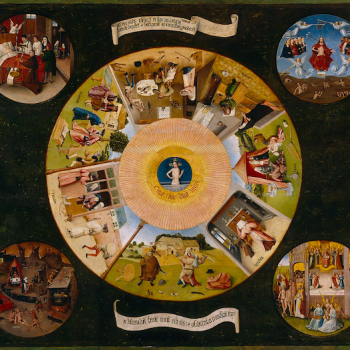 By Karl Giberson
By Karl Giberson
I am not optimistic about the future of America's great conversation about science and religion. That venerable dialogue grows increasingly polarized with each passing decade. On the one hand we have seen the ascendency of Ken Ham and his Answers in Genesis project, with its $27 million Creation Museum and huge media outreach, including an ambitious full-color glossy magazine with a circulation of almost 70,000. Ham now defines creationism and even science for many Christians.
Polls indicate that about half of the country agrees with him that the earth is just a few thousand years old. Al Mohler, the president of Southern Baptist Theological Seminary, recently made an aggressive presentation of this viewpoint, emphasizing that the "theological price" of any other position was too high. On the other hand the past decade has witnessed the emergence from the cultural shadows of "New Atheists" with a strong and unified voice that religion in all of its varied forms is a cancer that must be wiped out for the good of humanity. These New Atheists -- Richard Dawkins, Daniel Dennett, Jerry Coyne -- have become our culture's most visible spokespersons for evolution and science in general.
In contrast, a few decades ago creationism was represented by Henry Morris and the Institute for Creation Research who, unlike Ham, at least gave the impression that science mattered. And the leading spokespersons for evolution were Stephen Jay Gould and Carl Sagan who, while certainly not fans of religion, at least exhibited a modicum of tolerance for their religious audience, and refrained from hyperbole in their critiques.
In between these steadily polarizing extremes are people like Ken Miller, John Polkinghorne, and my colleagues at the BioLogos Foundation. Launched in 2008 by Francis Collins to seek a middle ground where one could be at peace with both science and the Christian faith, BioLogos has found itself under aggressive attack by Ken Ham and his merry band of biblical literalists from the right, and from the New Atheists and their godless minions on the left. Ham encourages his readers to check out the subversive BioLogos message, calling it a "warning to all Christians concerning what happens when God's Word is compromised with the secular religion of the age (evolution/millions of years) -- it is a direct attack on the authority of the Word of God." Coyne, on his popular Why Evolution Is True blog described BioLogos as a place where "writers blatantly expound the most extreme and Jebus-loving form of babble."
The folk huddled together on that babbling, compromising middle ground -- and that includes some distinctly non-religious thinkers like Michael Ruse and Chris Mooney -- have been labeled "accommodationists" by the atheists and "compromisers" by the creationists. Both labels are intended as terms of derision.
A decade ago it appeared that Intelligent Design might provide some helpful leadership on this question, but that promise seems to have gotten lost along the way. ID seems to have sputtered to a stall, having made no progress of any sort in engaging the scientific community with its ideas, and the evangelical world is seemingly filled with disappointed former ID enthusiasts. With its insistence that evolution produced the holocaust and science is a conspiracy, and its eagerness to poke holes in the current tapestry of scientific explanation, ID has become largely indistinguishable from creationism.
What seems to be appearing on the horizon is a well-articulated culture war over religious belief. Both the atheists and the creationists/ID supporters are in full agreement that there can be no peace between the religious and scientific views of the world. Neither is interested in any synthetic middle ground where one might simultaneously embrace a science shorn of its over-reaching scientism and a faith freed from a simplistic biblical literalism. As the voices grow louder and more insistent, the perch between them will grow ever more precarious, making it all but impossible to avoid sliding by default down a slippery slope toward one or the other.
There is reason to worry.
Dr. Karl Giberson is a physicist and leading scholar on matters of science and religion. A professor at Eastern Nazarene College, he is also the Vice President of the BioLogos Forum, Director of the Forum on Faith and Science at Gordon College, Co-Director of the Venice Summer School on Science and Religion, Editor in Chief of Science and Religion Today, and contributing editor to Books and Culture. See Dr. Giberson's recent book, Saving Darwin: How to Be a Christian and Believe in Evolution.
This article appears in a discussion on the Future of Evangelicalism. For more articles like this, see the Evangelical Portal.
8/4/2010 4:00:00 AM




